1. Early Life and Education
Rudyard Kipling's early life was marked by a unique blend of Indian immersion and challenging British boarding school experiences, both of which profoundly shaped his literary and personal development.
1.1. Birth and Childhood in India
Joseph Rudyard Kipling was born on 30 December 1865 in Bombay, then part of the Bombay Presidency in British India. His parents were Alice Kipling (née MacDonald) and John Lockwood Kipling. Alice, one of the four notable MacDonald sisters of the Victorian era, was known for her vivacious personality; Lord Dufferin famously remarked, "Dullness and Mrs Kipling cannot exist in the same room." John Lockwood Kipling, a sculptor and pottery designer, served as the Principal and Professor of Architectural Sculpture at the newly established Sir Jamsetjee Jeejebhoy School of Art in Bombay.
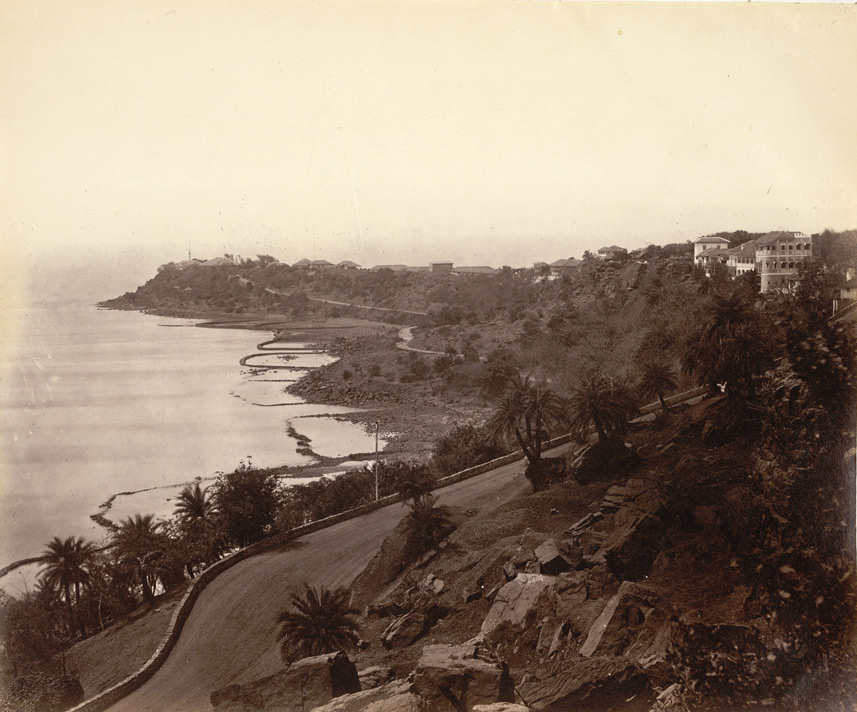
John Lockwood and Alice met and courted in 1863 near Rudyard Lake in Rudyard, Staffordshire, England. They married and moved to India in 1865 after John Lockwood accepted his professorship. They named their first child, Joseph Rudyard, after the lake that held such beauty for them. Kipling's maternal aunts included Georgiana, married to the painter Edward Burne-Jones, and Agnes, married to Edward Poynter. Another sister, Louisa, was the mother of Stanley Baldwin, Kipling's first cousin, who would later serve as Conservative Prime Minister of the United Kingdom three times in the 1920s and 1930s.
Kipling's birth home on the campus of the J. J. School of Art in Bombay was used for many years as the dean's residence. While a plaque marks a cottage as his birth site, some historians suggest the original structure may have been torn down and replaced around 1882, about 15 years after his birth. Kipling himself seemed to indicate this to the dean during a visit in the 1930s.
Kipling described Bombay as "Mother of Cities to me, / For I was born in her gate, / Between the palms and the sea, / Where the world-end steamers wait." His parents considered themselves "Anglo-Indians" (a 19th-century term for British people living in India), and Kipling, despite spending most of his life elsewhere, also identified with this identity. This complex interplay of identity and national allegiance became a prominent theme in his fiction. He recalled the linguistic duality of his early years: "In the afternoon heats before we took our sleep, she (the Portuguese ayah, or nanny) or Meeta (the Hindu bearer, or male attendant) would tell us stories and Indian nursery songs all unforgotten, and we were sent into the dining-room after we had been dressed, with the caution 'Speak English now to Papa and Mamma.' So one spoke 'English', haltingly translated out of the vernacular idiom that one thought and dreamed in."
1.2. Education in Britain
Kipling's "strong light and darkness" days in Bombay ended abruptly at the age of five. Following the custom for British children in India, he and his three-year-old sister Alice ("Trix") were sent to the United Kingdom to live with a couple, Captain Pryse Agar Holloway and Sarah Holloway, who boarded children of British nationals residing abroad. For six years, from October 1871 to April 1877, the children resided at Lorne Lodge, 4 Campbell Road, Southsea, Portsmouth. Kipling later referred to this period as "the House of Desolation" and recounted it with horror in his autobiography, Something of Myself, published 65 years later. He speculated that the "calculated torture-religious as well as scientific" he endured from Mrs. Holloway, a combination of cruelty and neglect, might have inadvertently hastened his literary development by forcing him to construct elaborate "lies" to cope, which he saw as the "foundation of literary effort."
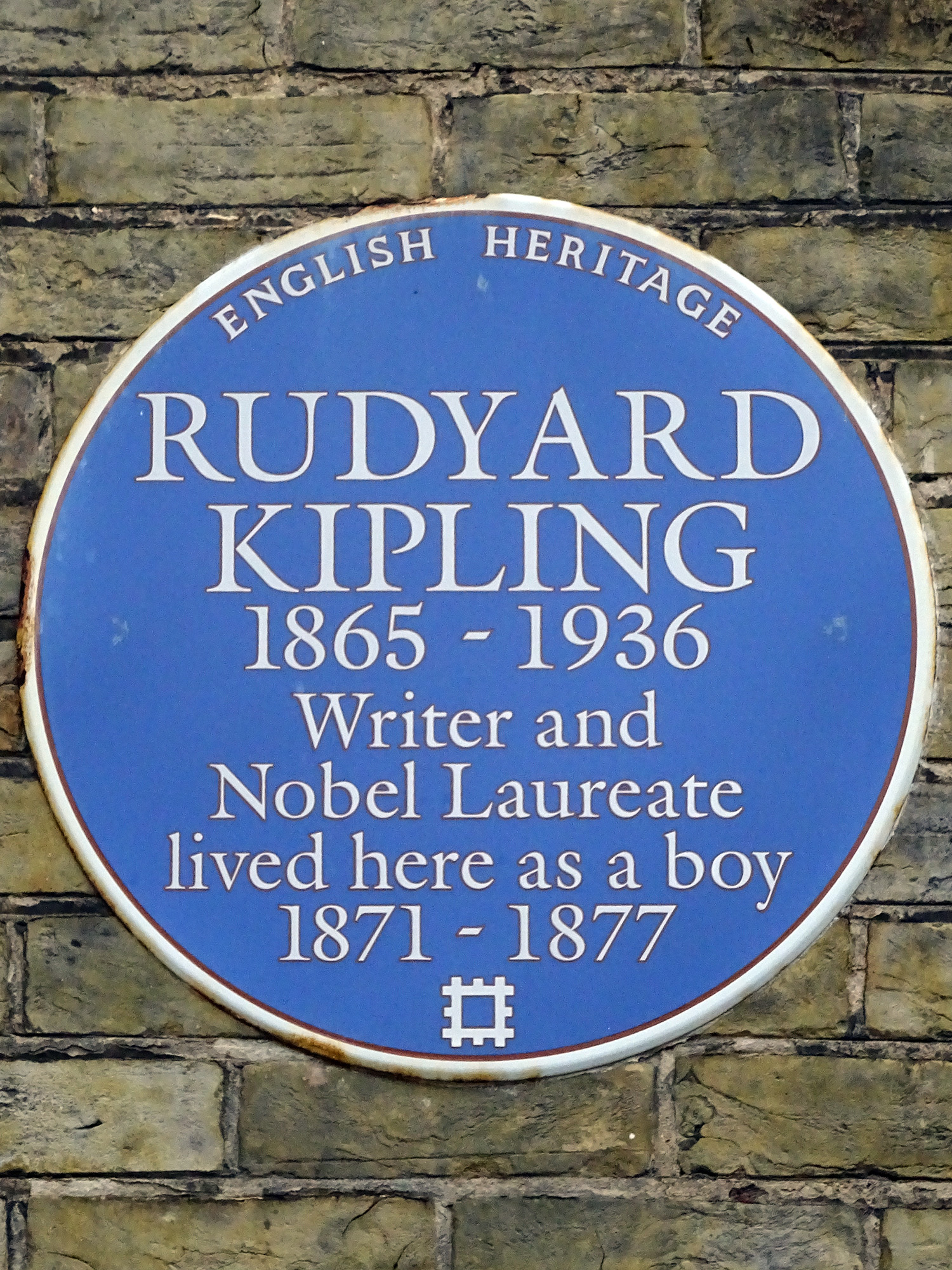
While Kipling suffered, Trix seemingly fared better, as Mrs. Holloway reportedly hoped she would marry their son. The Kipling children had no other relatives in England they could visit, except for a month each Christmas spent with their maternal aunt Georgiana ("Georgy") and her husband, Edward Burne-Jones, at their home, The Grange, in Fulham, London. Kipling described this as "a paradise which I verily believe saved me." In the spring of 1877, Alice returned from India and removed the children from Lorne Lodge. Kipling reflected on why he never spoke of his treatment: "Children tell little more than animals, for what comes to them they accept as eternally established. Also, badly-treated children have a clear notion of what they are likely to get if they betray the secrets of a prison-house before they are clear of it."
After a carefree summer and autumn at Goldings Farm in Loughton, sometimes with his cousin Stanley Baldwin, Kipling was admitted in January 1878 to the United Services College at Westward Ho!, Devon. This boarding school, recently founded to prepare boys for the army, was initially challenging for him. However, it eventually fostered strong friendships and became the setting for his schoolboy stories, Stalky & Co. (1899), whose protagonists often displayed a cynical outlook on patriotism and authority. During his time there, Kipling developed a romantic interest in Florence Garrard, a boarder with Trix in Southsea, who later became the model for Maisie in his first novel, The Light That Failed (1891).
Near the end of his schooling, it was determined that Kipling lacked the academic qualifications for an Oxford University scholarship. His parents, unable to finance his university education, secured him a position in Lahore, where his father served as Principal of the Mayo College of Art and Curator of the Lahore Museum. Kipling was to become an assistant editor for the local newspaper, the Civil and Military Gazette. He sailed for India on 20 September 1882, arriving in Bombay on 18 October. He noted how this return to his birthplace, at 16 years and nine months old, felt like a profound shift: "After these, my English years fell away, nor ever, I think, came back in full strength."
2. Career in India
Kipling's return to India marked a pivotal period in his career, where he honed his journalistic skills and began to establish himself as a prolific writer, drawing heavily on his experiences in British India.
2.1. Journalism and Early Publications
From 1883 to 1889, Kipling worked in British India as an assistant editor for local newspapers, first for the Civil and Military Gazette in Lahore and later for The Pioneer in Allahabad. He referred to the Civil and Military Gazette as his "mistress and most true love." This newspaper was published six days a week, with only one-day breaks for Christmas and Easter, and its editor, Stephen Wheeler, demanded rigorous work. Despite the demanding schedule, Kipling's drive to write was insatiable. He became a member of the Punjab Club, which allowed him to interact with British residents and local Indians from various fields.
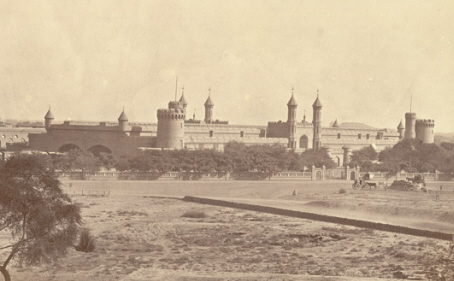
In 1886, he published his first collection of verse, Departmental Ditties. The same year, a new editor, E. Kay Robinson, joined the newspaper, granting Kipling greater creative freedom and encouraging him to contribute short stories. An anecdote from an ex-colleague, printed in the Chums boys' annual, describes Kipling's fervent dedication to writing: "he never knew such a fellow for ink - he simply revelled in it, filling up his pen viciously, and then throwing the contents all over the office, so that it was almost dangerous to approach him." The colleague added that in the hot weather, Kipling, wearing only white trousers and a thin vest, "is said to have resembled a Dalmatian dog more than a human being, for he was spotted all over with ink in every direction."
In the summer of 1883, Kipling began visiting Simla (today's Shimla), a renowned hill station and the summer capital of British India. It was customary for the Viceroy of India and the government to relocate to Simla for six months, transforming the town into a "centre of power as well as pleasure." Kipling's family became annual visitors, and his father, John Lockwood Kipling, was asked to serve in Christ Church there. Rudyard Kipling returned to Simla for his annual leave from 1885 to 1888, and the town prominently featured in many stories he wrote for the Gazette. He cherished these visits, describing them as "pure joy - every golden hour counted."
Back in Lahore, 39 of his stories appeared in the Gazette between November 1886 and June 1887. Most of these were included in Plain Tales from the Hills, his first prose collection, published in Calcutta in January 1888, a month after his 22nd birthday. In November 1887, Kipling was transferred to The Pioneer, the Gazette's larger sister newspaper in Allahabad, United Provinces, where he served as assistant editor and resided in Belvedere House from 1888 to 1889.
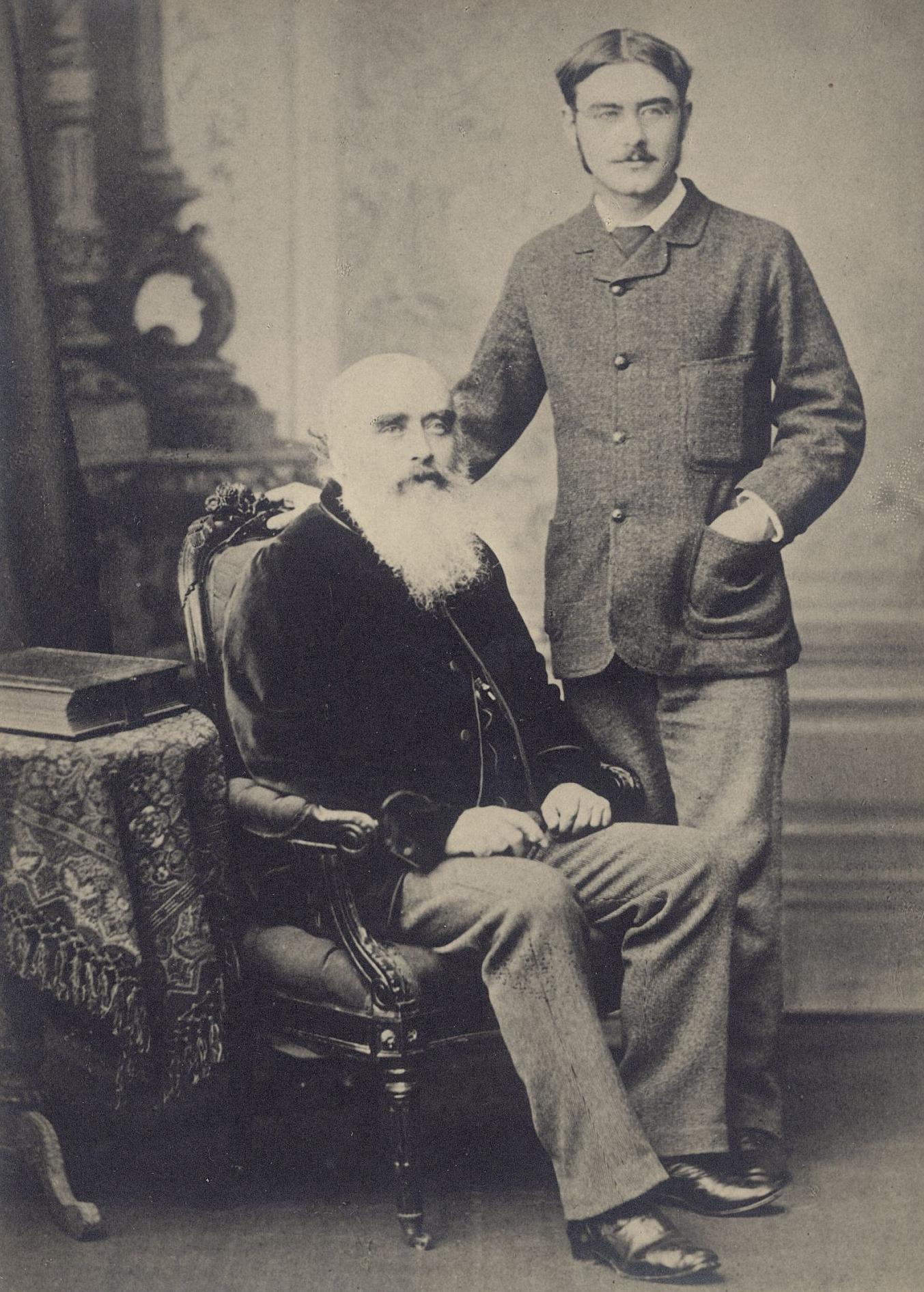
Kipling's writing continued at a frenetic pace. In 1888, he published six collections of short stories: Soldiers Three, The Story of the Gadsbys, In Black and White, Under the Deodars, The Phantom Rickshaw, and Wee Willie Winkie. These collections contained a total of 41 stories, some quite lengthy. Additionally, as The Pioneer's special correspondent in the western region of Rajputana, he wrote many sketches that were later compiled into Letters of Marque and published in From Sea to Sea and Other Sketches, Letters of Travel.
Kipling was discharged from The Pioneer in early 1889 after a dispute. By this time, he was increasingly contemplating his future. He sold the rights to his six volumes of stories for 200 GBP and a small royalty, and the Plain Tales for 50 GBP. He also received six months' salary from The Pioneer in lieu of notice. He decided to use this money to move to London, the literary center of the British Empire, and pursue further literary studies.
3. International Travels and London Debut
After his productive years in India, Kipling embarked on extensive world travels before making a significant entry into the London literary scene, where he rapidly achieved widespread recognition.
3.1. World Travels (1889)
On 9 March 1889, Kipling departed India, beginning an extensive journey that would take him across Asia and North America. His travels first led him to Rangoon, Singapore, Hong Kong, and Japan. Kipling was particularly impressed by Japan, describing its people and customs as "gracious folk and fair manners." His observations on the manners and customs of the Japanese were later cited by the Nobel Prize committee when they awarded him the Nobel Prize in Literature in 1907. Kipling later wrote that he "had lost his heart" to a geisha he called O-Toyo, recalling while in the United States during the same trip, "I had left the innocent East far behind.... Weeping softly for O-Toyo.... O-Toyo was a darling."
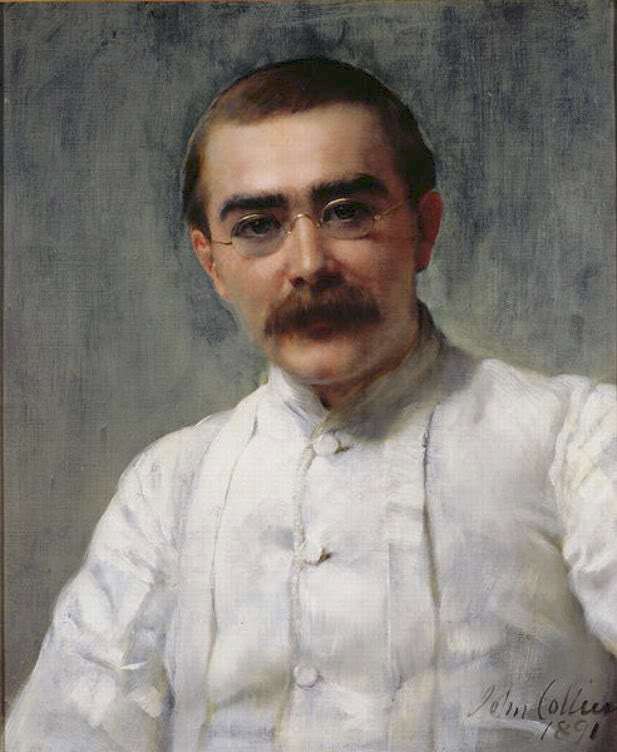
From Japan, Kipling traveled through the United States, writing articles for The Pioneer that were subsequently published in From Sea to Sea and Other Sketches, Letters of Travel. His North American itinerary began in San Francisco, then moved north to Portland, Oregon, Seattle, Washington, and further into Canada to Victoria and Vancouver, British Columbia. He then traveled through Medicine Hat, Alberta, before re-entering the US to visit Yellowstone National Park, continuing south to Salt Lake City, then east to Omaha, Nebraska, and on to Chicago. He also visited the Hill family-Mrs. Edmonia 'Ted' Hill, who had been Kipling's close confidante and collaborator in British India, and her husband, Professor S. A. Hill-in Beaver, Pennsylvania, on the Ohio River. From Beaver, Kipling went to Chautauqua with Professor Hill, and later to Niagara Falls, Toronto, Washington, D.C., New York, and Boston.
During this journey, he met Mark Twain in Elmira, New York, an encounter that deeply impressed him. Kipling arrived unannounced at Twain's home, later reflecting, "It occurred to me for the first time that Mark Twain might possibly have other engagements other than the entertainment of escaped lunatics from India, be they ever so full of admiration." Twain, however, warmly welcomed Kipling, and they engaged in a two-hour conversation about trends in Anglo-American literature and Twain's plans for a sequel to Tom Sawyer. Twain also offered Kipling literary advice: "get your facts first and then you can distort 'em as much as you please." Twain, who grew fond of Kipling, later remarked, "Between us, we cover all knowledge; he covers all that can be known and I cover the rest." In October 1889, Kipling crossed the Atlantic to Liverpool, making his debut in the London literary world to significant acclaim.
3.2. Literary Breakthrough in London
Upon his arrival in London, Kipling quickly found success, with several of his stories accepted by magazines. For the next two years, he resided in rooms on Villiers Street, near Charing Cross, in a building later named Kipling House. He described his quarters: "My rooms were small, not over-clean or well-kept, but from my desk I could look out of my window through the fanlight of Gatti's Music-Hall entrance, across the street, almost on to its stage. The Charing Cross trains rumbled through my dreams on one side, the boom of the Strand on the other, while, before my windows, Father Thames under the Shot tower walked up and down with his traffic."
In the subsequent two years, Kipling published his novel, The Light That Failed, experienced a nervous breakdown, and met Wolcott Balestier, an American writer and publishing agent. They collaborated on a novel, The Naulahka (a title Kipling uncharacteristically misspelled, as it was later corrected to Naulakha). In 1891, on his doctors' advice, Kipling took another sea voyage, visiting South Africa, Australia, New Zealand, and once again, India. He cut short his plans to spend Christmas with his family in India upon learning of Balestier's sudden death from typhoid fever, deciding to return to London immediately. Before his return, he had used the telegram to propose to Wolcott's sister, Caroline Starr Balestier (1862-1939), known as "Carrie," whom he had met a year earlier and with whom he had an intermittent romance. Late in 1891, a collection of his short stories about the British in India, Life's Handicap, was published in London.
On 18 January 1892, Carrie Balestier, aged 29, and Rudyard Kipling, aged 26, married in London amidst a severe influenza epidemic, a time when "the undertakers had run out of black horses and the dead had to be content with brown ones." The wedding took place at All Souls Church in Langham Place, central London, with Henry James giving away the bride.
4. Life in the United States (1892-1896)
Following their marriage, Kipling and his wife settled in Vermont, USA, a period marked by significant personal milestones and the creation of some of his most enduring works, though it ultimately ended due to personal and political tensions.
4.1. Marriage and Family Life
Kipling and Carrie embarked on a honeymoon that first took them to the United States, including a stop at the Balestier family estate near Brattleboro, Vermont, and then to Japan. However, upon their arrival in Yokohama, they discovered that their bank, The New Oriental Banking Corporation, had failed. Taking this financial setback in stride, they returned to the U.S., specifically to Vermont, as Carrie was by then pregnant with their first child. They rented a small cottage on a farm near Brattleboro for 10 USD a month. Kipling recalled, "We furnished it with a simplicity that fore-ran the hire-purchase system. We bought, second or third hand, a huge, hot-air stove which we installed in the cellar. We cut generous holes in our thin floors for its eight-inch [20 cm] tin pipes (why we were not burned in our beds each week of the winter I never can understand) and we were extraordinarily and self-centredly content."
In this cottage, which they named Bliss Cottage, their first child, Josephine, was born "in three-foot of snow on the night of 29th December, 1892. Her Mother's birthday being the 31st and mine the 30th of the same month, we congratulated her on her sense of the fitness of things..."
4.2. Major Works and Creative Period
It was in Bliss Cottage that the initial ideas for The Jungle Books began to form for Kipling. He recounted: "The workroom in the Bliss Cottage was seven feet by eight, and from December to April, the snow lay level with its window-sill. It chanced that I had written a tale about Indian Forestry work which included a boy who had been brought up by wolves. In the stillness, and suspense, of the winter of '92 some memory of the Masonic Lions of my childhood's magazine, and a phrase in Haggard's Nada the Lily, combined with the echo of this tale. After blocking out the main idea in my head, the pen took charge, and I watched it begin to write stories about Mowgli and animals, which later grew into the two Jungle Books."
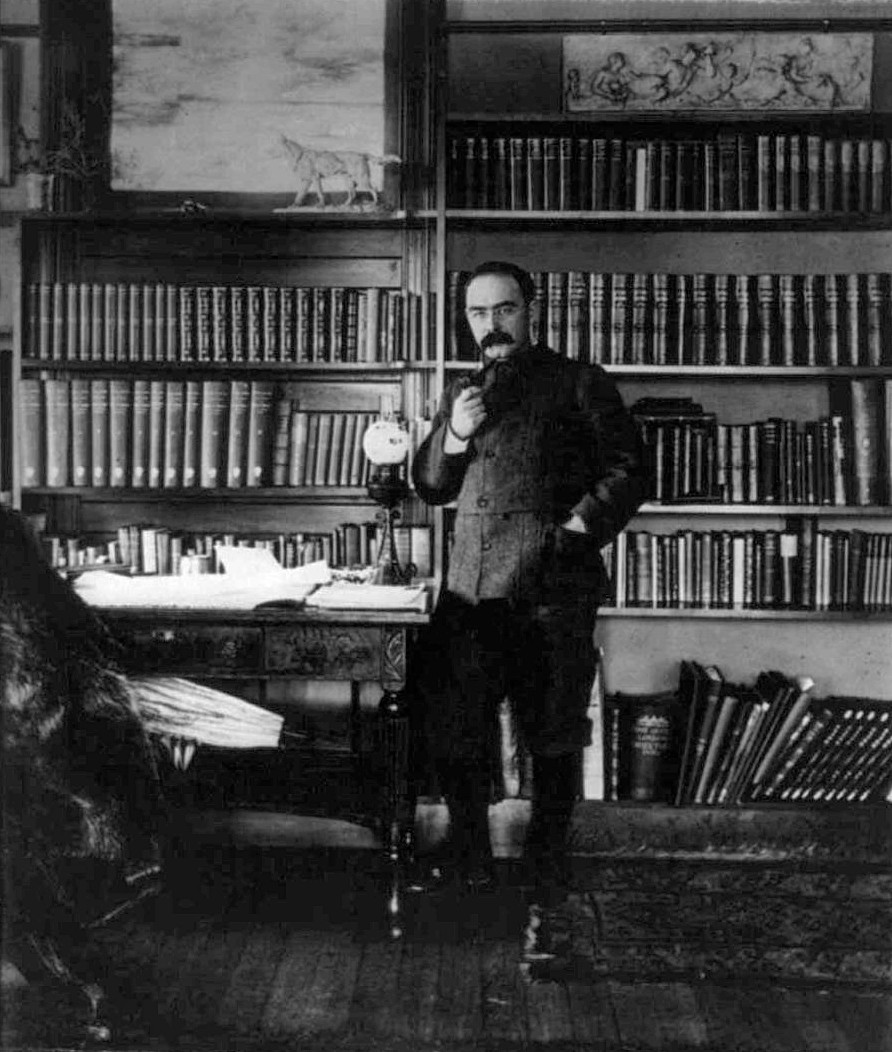
With Josephine's arrival, Bliss Cottage felt cramped, so the couple eventually purchased 25 acre (10 ha) of land on a rocky hillside overlooking the Connecticut River from Carrie's brother, Beatty Balestier, and built their own house. Kipling named this home Naulakha, in honor of Wolcott and their collaboration, ensuring the name was correctly spelled this time. From his early years in Lahore (1882-87), Kipling had developed an affection for Mughal architecture, particularly the Naulakha pavilion situated in Lahore Fort, which inspired both his novel's title and his new home. The house still stands on Kipling Road, 3 spell=in north of Brattleboro in Dummerston, Vermont: a large, secluded, dark-green house with a shingled roof and sides, which Kipling affectionately called his "ship," and which brought him "sunshine and a mind at ease."
His seclusion in Vermont, combined with a healthy and "sane clean life," made Kipling exceptionally inventive and prolific. In just four years, he produced, alongside the Jungle Books, a book of short stories (The Day's Work), a novel (Captains Courageous), and a wealth of poetry, including the volume The Seven Seas. The collection of Barrack-Room Ballads, though mostly published individually in 1890, was issued in March 1892 and featured his famous poems "Mandalay" and "Gunga Din". He particularly enjoyed writing the Jungle Books and corresponding with the many children who wrote to him about them.
The writing life at Naulakha was occasionally interrupted by visitors, including his father, who visited soon after his retirement in 1893, and the British writer Arthur Conan Doyle, who brought his golf clubs, stayed for two days, and gave Kipling an extended golf lesson. Kipling seemed to enjoy golf, sometimes practicing with the local Congregational minister and even playing with red-painted balls when the ground was covered in snow. However, winter golf was "not altogether a success because there were no limits to a drive; the ball might skid 2 spell=in down the long slope to Connecticut river." Kipling loved the outdoors, including the marvel of the leaves changing color each fall in Vermont. He described this moment in a letter: "A little maple began it, flaming blood-red of a sudden where he stood against the dark green of a pine-belt. Next morning there was an answering signal from the swamp where the sumacs grow. Three days later, the hill-sides as fast as the eye could range were afire, and the roads paved, with crimson and gold. Then a wet wind blew, and ruined all the uniforms of that gorgeous army; and the oaks, who had held themselves in reserve, buckled on their dull and bronzed cuirasses and stood it out stiffly to the last blown leaf, till nothing remained but pencil-shadings of bare boughs, and one could see into the most private heart of the woods."
In February 1896, their second daughter, Elsie, was born. According to several biographers, by this time, their marital relationship had lost some of its light-hearted spontaneity. Although they remained loyal, they seemed to have settled into more defined roles. In a letter to a newly engaged friend, the 30-year-old Kipling offered sober counsel that marriage primarily taught "the tougher virtues - such as humility, restraint, order, and forethought." Later that year, he temporarily taught at Bishop's College School in Quebec, Canada.
4.3. Departure from the U.S.
The Kiplings cherished their life in Vermont and might have remained there indefinitely had it not been for two significant incidents: one involving global politics and the other, family discord. In the early 1890s, the United Kingdom and Venezuela were entangled in a border dispute concerning British Guiana. The U.S. had offered to arbitrate several times, but in 1895, the new American Secretary of State Richard Olney escalated the situation by asserting America's "right" to arbitrate based on its continental sovereignty (an extension of the Monroe Doctrine, known as the Olney interpretation). This assertion provoked strong reactions in Britain, escalating into a major Anglo-American crisis, with talk of war on both sides.
Although the crisis eventually led to greater United States-British cooperation, Kipling was deeply unsettled by what he perceived as persistent anti-British sentiment in the U.S., particularly in the press. He wrote in a letter that it felt like being "aimed at with a decanter across a friendly dinner table." By January 1896, he had decided to end his family's "good wholesome life" in the U.S. and seek their fortunes elsewhere.
A family dispute ultimately became the decisive factor. For some time, relations between Carrie and her brother Beatty Balestier had been strained due to his drinking problems and insolvency. In May 1896, an intoxicated Beatty confronted Kipling on the street and threatened him with physical harm. The incident led to Beatty's arrest, but the subsequent legal hearings and the resulting intense public scrutiny shattered Kipling's privacy, leaving him feeling miserable and exhausted. In July 1896, just a week before the hearing was scheduled to resume, the Kiplings packed their belongings, departed the United States, and returned to England.
5. Return to England and Peak Period (1896-1914)
Upon their return to England, Kipling entered a period of continued literary success and increasing public engagement, solidifying his status as a prominent voice, albeit one often embroiled in controversy due to his strong political and social views.
5.1. Devon and Sussex Residences
By September 1896, the Kiplings were settled in Torquay, Devon, on England's south-western coast, in a hillside home called Rock House, Maidencombe, which overlooked the English Channel. Although Kipling disliked the house, claiming its design made its occupants feel dispirited and gloomy, he managed to remain productive and socially active. Their first son, John, was born in August 1897. During this time, Kipling began working on two poems, "Recessional" (1897) and "The White Man's Burden" (1899), both of which would generate considerable controversy upon publication. While some viewed these poems as anthems for an enlightened and duty-bound empire-building, capturing the mood of the Victorian era, others criticized them as propaganda for brazen imperialism and its associated racial attitudes. Still others found irony in the poems, interpreting them as warnings about the perils of empire.
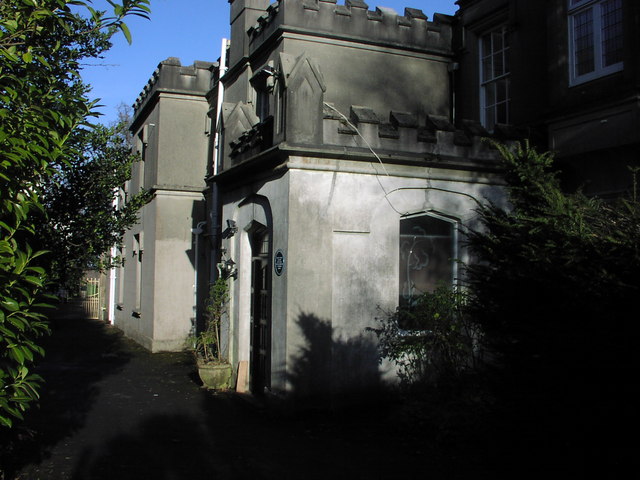
"The White Man's Burden" included the lines:
Take up the White Man's burden-
Send forth the best ye breed-
Go, bind your sons to exile
To serve your captives' need;
To wait, in heavy harness,
On fluttered folk and wild-
Your new-caught sullen peoples,
Half devil and half child.
There was also a sense of foreboding in his poems, a feeling that all could ultimately come to naught, as seen in "Recessional":
Far-called, our navies melt away;
On dune and headland sinks the fire:
Lo, all our pomp of yesterday
Is one with Nineveh and Tyre!
Judge of the Nations, spare us yet.
Lest we forget - lest we forget!
During his time in Torquay, Kipling remained a prolific writer, also producing Stalky & Co., a collection of school stories inspired by his experiences at the United Services College in Westward Ho!. His family noted that Kipling enjoyed reading stories from Stalky & Co. aloud to them, often laughing heartily at his own jokes.
In 1897, Kipling moved from Torquay to Rottingdean, near Brighton, East Sussex, residing first at North End House and then at the Elms. In 1902, Kipling purchased Bateman's, a house built in 1634, located in rural Burwash. The house, along with its surrounding buildings, a mill, and 82 acre (33 ha) of land, was bought for 9.30 K GBP. Despite lacking a bathroom, running water upstairs, and electricity, Kipling adored it, describing it in a November 1902 letter as: "Behold us, lawful owners of a grey stone lichened house - A.D. 1634 over the door - beamed, panelled, with old oak staircase, and all untouched and unfaked. It is a good and peaceable place. We have loved it ever since our first sight of it." Bateman's remained Kipling's home until his death in 1936.
5.2. South African Visits and Political Engagement
In early 1898, the Kiplings began an annual tradition of traveling to South Africa for their winter holiday, a practice that continued (with one exception) until 1908. They stayed at "The Woolsack," a house on Cecil Rhodes's estate at Groote Schuur, within walking distance of Rhodes' mansion. With his burgeoning reputation as the Poet of the Empire, Kipling was warmly welcomed by influential politicians in the Cape Colony, including Rhodes, Sir Alfred Milner, and Leander Starr Jameson. Kipling cultivated their friendship and developed a deep admiration for these men and their political ideologies. The period from 1898 to 1910 was critical in South African history, encompassing the Second Boer War (1899-1902), the subsequent peace treaty, and the formation of the Union of South Africa in 1910.
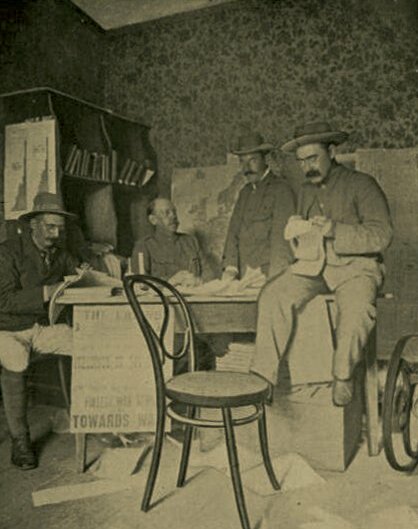
Back in England, Kipling wrote poetry in support of the British cause during the Boer War. On his next visit to South Africa in early 1900, he became a correspondent for The Friend newspaper in Bloemfontein, which Lord Roberts had commandeered for British troops. Although his journalistic stint lasted only two weeks, it marked Kipling's first newspaper work since leaving The Pioneer in Allahabad over ten years prior. At The Friend, he forged lifelong friendships with Perceval Landon, H. A. Gwynne, and others. He also wrote articles, published more widely, expressing his strong views on the conflict. Kipling penned an inscription for the Honoured Dead Memorial (Siege memorial) in Kimberley.
5.3. Nobel Prize in Literature
In 1907, Rudyard Kipling was awarded the Nobel Prize in Literature, having been nominated that year by Charles Oman, a professor at the University of Oxford. The prize citation recognized him "in consideration of the power of observation, originality of imagination, virility of ideas and remarkable talent for narration which characterize the creations of this world-famous author." The Nobel Prizes had been established in 1901, making Kipling the first English-language recipient. At 41, he was also the youngest laureate to date.
At the award ceremony in Stockholm on 10 December 1907, the Permanent Secretary of the Swedish Academy, Carl David af Wirsén, lauded both Kipling and three centuries of English literature:
The Swedish Academy, in awarding the Nobel Prize in Literature this year to Rudyard Kipling, desires to pay a tribute of homage to the literature of England, so rich in manifold glories, and to the greatest genius in the realm of narrative that that country has produced in our times.
This achievement was bookended by the publication of two connected poetry and story collections: Puck of Pook's Hill (1906) and Rewards and Fairies (1910). The latter contained the poem "If-", which was voted the UK's favorite poem in a 1995 BBC opinion poll. This exhortation to self-control and stoicism is arguably Kipling's most famous poem.
5.4. Political Views and Controversies
Kipling's political and social views were deeply conservative and often generated significant debate and criticism, reflecting the complex and evolving ideologies of his era.
5.4.1. Imperialism and "The White Man's Burden"
Kipling held a complex relationship with British imperialism, which was a central theme in many of his writings. His poems, particularly "The White Man's Burden" (1899), reflected and influenced contemporary imperialist thought. While some interpreted them as anthems for an enlightened and duty-bound empire-building, others saw them as propaganda for brazen-faced imperialism and its associated racial attitudes. Still others found irony in the poems, viewing them as warnings about the perils and burdens of empire. From a critical, center-left perspective, these works are seen as problematic for their implicit justification of colonial rule and the racial hierarchies they perpetuated, despite any nuanced interpretations.
5.4.2. Views on Germany and International Relations
Kipling's growing antipathy towards Germany became a prominent feature of his later political commentary. He was particularly offended by German Emperor Wilhelm II's "Hun speech (HunnenredeGerman)" in 1900, which urged German troops sent to crush the Boxer Rebellion in China to behave like "Huns" and take no prisoners. In his 1902 poem, The Rowers, Kipling attacked the Kaiser as a threat to Britain and notably made the first use of the term "Hun" as an anti-German insult, leveraging Wilhelm's own words and the actions of German troops in China to portray Germans as inherently barbaric. In an interview with the French newspaper Le Figaro, the Francophile Kipling characterized Germany as a menace and called for an Anglo-French alliance to counter it. He also described the "unfrei peoples of Central Europe" as living in "the Middle Ages with machine guns," reflecting his deep concerns about European power dynamics before World War I.
5.4.3. Irish Unionism
Kipling was a staunch supporter of Irish Unionists and a vocal opponent of Irish Home Rule, reflecting his conservative and anti-nationalist sentiments regarding Ireland. He was a close friend of Edward Carson, the Dublin-born leader of Ulster Unionism, who raised the Ulster Volunteers to prevent Home Rule in Ireland. Kipling argued in a letter to a friend that Ireland was not a nation, claiming that before the English arrived in 1169, the Irish were "a gang of cattle thieves living in savagery and killing each other while 'writing dreary poems' about it all." In his view, only British rule had allowed Ireland to advance. A visit to Ireland in 1911 reinforced Kipling's prejudices; he found the Irish countryside beautiful but marred by what he called the "ugly homes of Irish farmers," adding that God had made the Irish into poets while "deprived them of love of line or knowledge of colour." In contrast, he praised the "decent folk" of the Protestant minority and Unionist Ulster, whom he saw as free from the threat of "constant mob violence."
Kipling's poem "Ulster" (1912) directly reflected his Unionist politics, and he often referred to the Irish Unionists as "our party." His lack of sympathy or understanding for Irish nationalism led him to view Home Rule as an act of treason by the Liberal Prime Minister H. H. Asquith's government, which he believed would plunge Ireland into the Dark Ages and allow the Irish Catholic majority to oppress the Protestant minority. Scholar David Gilmour noted Kipling's mischaracterization of John Redmond, the Anglophile leader of the Irish Parliamentary Party who sought Home Rule as a means to preserve the United Kingdom, as a traitor. The poem Ulster was first publicly read at a Unionist rally in Belfast, where the largest Union Jack ever made was unfurled. Kipling admitted it was intended to strike a "hard blow" against the Asquith government's Home Rule bill, proclaiming: "Rebellion, rapine, hate, Oppression, wrong and greed, Are loosed to rule our fate, By England's act and deed." Ulster generated significant controversy, with Conservative MP Sir Mark Sykes, despite being a Unionist opposed to the Home Rule bill, condemning it in The Morning Post as a "direct appeal to ignorance and a deliberate attempt to foster religious hate."
5.4.4. Anti-Bolshevism
Kipling was a staunch opponent of Bolshevism and communism, a position he shared with his lifelong friend Henry Rider Haggard. They had bonded upon Kipling's arrival in London in 1889, largely due to their shared opinions, and remained close throughout their lives. Kipling viewed the Bolshevik takeover in 1917 with extreme hostility, stating that one-sixth of the world had "passed bodily out of civilization." In a 1918 poem, he depicted Soviet Russia as a place where everything good had been destroyed by the Bolsheviks, leaving only "the sound of weeping and the sight of burning fire, and the shadow of a people trampled into the mire." In 1920, Kipling co-founded the Liberty League with Haggard and Lord Sydenham. This short-lived initiative aimed to promote classic liberal ideals in response to the rising communist tendencies in Great Britain, or, as Kipling articulated, "to combat the advance of Bolshevism."
Kipling's views were firmly on the political right. While he expressed some admiration for Benito Mussolini in the 1920s, he was fundamentally opposed to fascism, dismissing Oswald Mosley as "a bounder and an arriviste." By 1935, he regarded Mussolini as a deranged and dangerous egomaniac, and in 1933, he wrote, "The Hitlerites are out for blood." Despite his strong anti-communism, Kipling remained popular with Russian readers during the interwar period, influencing many younger Russian poets and writers, such as Konstantin Simonov, who admired his clarity of style, use of colloquial language, and command of rhythm and rhyme. Although Soviet journals were obligated to preface Kipling translations with attacks on him as a "fascist" and "imperialist," his works were not banned in the Soviet Union until 1939 with the signing of the Molotov-Ribbentrop Pact. The ban was lifted in 1941 after Operation Barbarossa when Britain became a Soviet ally but was reimposed with the onset of the Cold War in 1946.
5.5. Freemasonry
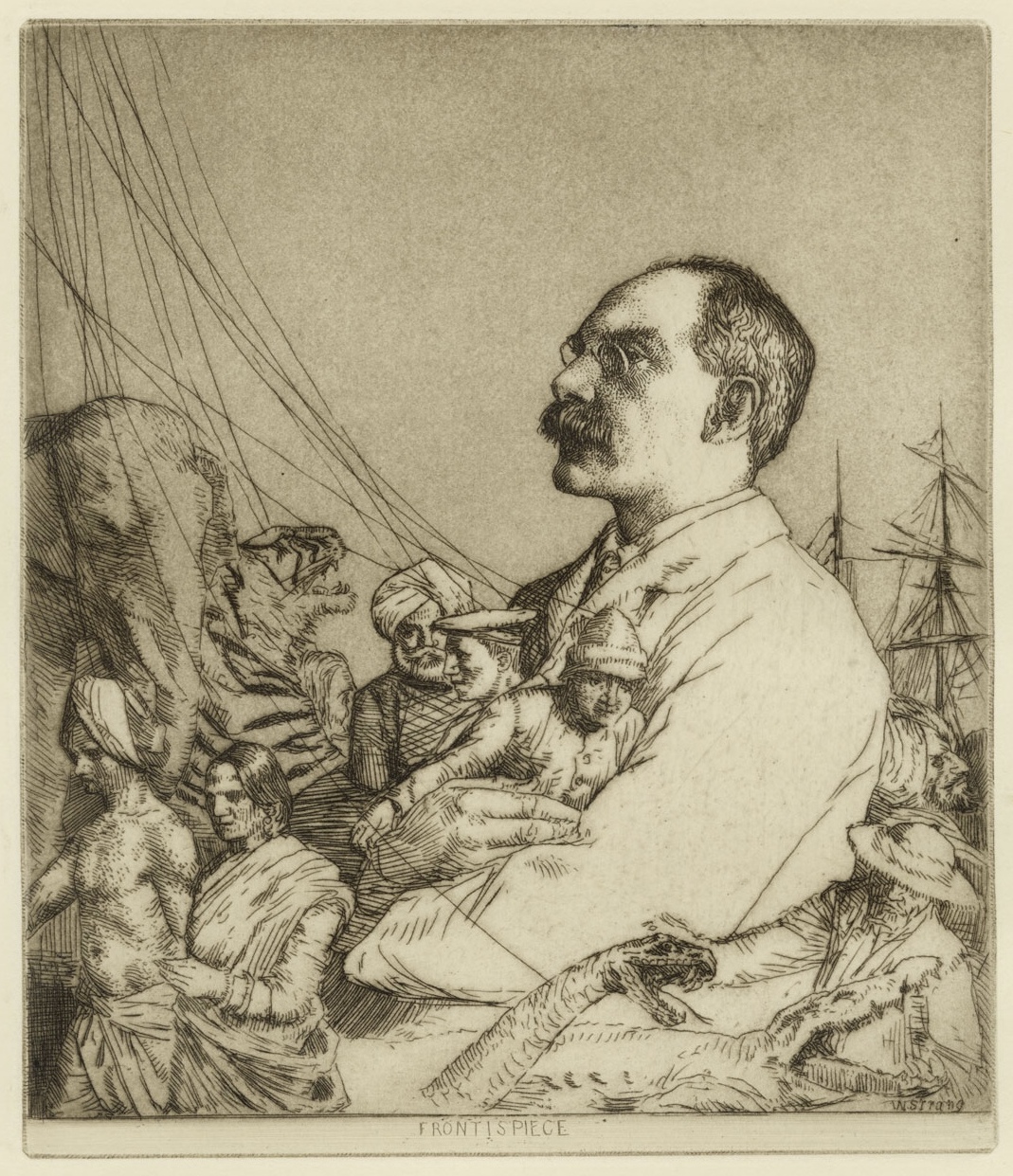
According to the English magazine Masonic Illustrated, Kipling became a Freemason around 1885, before the usual minimum age of 21. He was initiated into Hope and Perseverance Lodge No. 782 in Lahore. Kipling later wrote to The Times, "I was Secretary for some years of the Lodge... which included Brethren of at least four creeds. I was entered [as an Apprentice] by a member from Brahmo Somaj, a Hindu, passed [to the degree of Fellow Craft] by a Mohammedan, and raised [to the degree of Master Mason] by an Englishman. Our Tyler was an Indian Jew." Kipling received not only the three degrees of Craft Masonry but also the side degrees of Mark Master Mason and Royal Ark Mariner. He cherished his Masonic experience, memorializing its ideals in his poem "The Mother Lodge," and incorporating the fraternity and its symbols as vital plot devices in his novella The Man Who Would Be King.
5.6. Speculative Fiction
Kipling made notable contributions to speculative fiction, writing several short stories that explored imaginative and futuristic concepts. Among these is "The Army of a Dream", where he envisioned a more efficient and responsible army, contrasting it with the hereditary bureaucracy of contemporary England. He also penned two significant science fiction stories: "With the Night Mail" (1905) and "As Easy As A.B.C." (1912). Both are set in the 21st century within Kipling's Aerial Board of Control universe. These stories read like modern hard science fiction and introduced the literary technique known as indirect exposition, which would later become a hallmark of science fiction writers like Robert Heinlein. Kipling had developed this technique in India to help his English readers understand the complexities of Indian society when he wrote The Jungle Book.
6. First World War (1914-1918)
The First World War profoundly impacted Kipling, both personally and professionally. He actively contributed to the war effort through his writing, while simultaneously enduring immense personal tragedy.
6.1. War Propaganda and Views
At the outset of the First World War, Kipling, like many other writers, enthusiastically penned pamphlets and poems supporting the UK's war aims, particularly the restoration of Belgium after its occupation by Germany. He also articulated generalized statements that Britain was championing the cause of good. In September 1914, the government formally asked Kipling to write propaganda, an offer he readily accepted. His pamphlets and stories proved popular with the British public during the war. His major themes glorified the British military as the ideal place for heroic men, while vividly describing German atrocities against Belgian civilians and the stories of women brutalized by the horrific war unleashed by Germany, yet surviving and triumphing despite their suffering.
Kipling was incensed by reports of the Rape of Belgium and the sinking of the RMS Lusitania in 1915, which he viewed as a deeply inhumane act. These events led him to perceive the war as a crusade for civilization against barbarism. In a 1915 speech, Kipling declared, "There was no crime, no cruelty, no abomination that the mind of men can conceive of which the German has not perpetrated, is not perpetrating, and will not perpetrate if he is allowed to go on... Today, there are only two divisions in the world... human beings and Germans."
Alongside his passionate antipathy towards Germany, Kipling harbored deep private criticisms of how the war was being fought by the British Army. Shocked by the heavy losses sustained by the British Expeditionary Force by the autumn of 1914, he blamed the entire pre-war generation of British politicians. Kipling argued that these leaders had failed to learn the lessons of the Second Boer War, and consequently, thousands of British soldiers were now paying with their lives for their failures in the fields of France and Belgium.
Kipling expressed scorn for men who shirked their duty in the First World War. In "The New Army in Training" (1915), he concluded by questioning the future position of those who avoided service:
This much we can realise, even though we are so close to it, the old safe instinct saves us from triumph and exultation. But what will be the position in years to come of the young man who has deliberately elected to outcaste himself from this all-embracing brotherhood? What of his family, and, above all, what of his descendants, when the books have been closed and the last balance struck of sacrifice and sorrow in every hamlet, village, parish, suburb, city, shire, district, province, and Dominion throughout the Empire?
In 1914, Kipling was one of 53 leading British authors, including H. G. Wells, Arthur Conan Doyle, and Thomas Hardy, who signed the "Authors' Declaration." This manifesto asserted that the German invasion of Belgium was a brutal crime and that Britain "could not without dishonour have refused to take part in the present war."
6.2. Death of Son, John Kipling
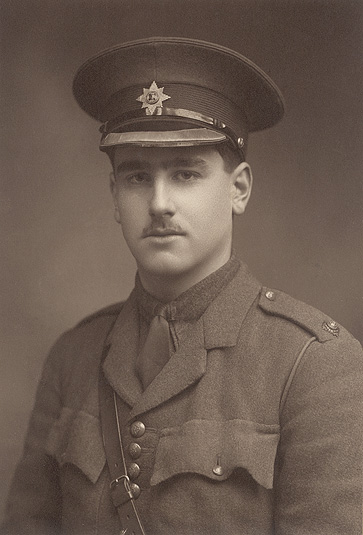
Kipling's only son, John, was killed in action at the Battle of Loos in September 1915, at the age of 18. John initially sought to join the Royal Navy but was rejected due to poor eyesight after a failed medical examination. He then attempted to enlist as an army officer twice, but his eyesight again proved to be an issue. Rudyard Kipling, a lifelong friend of Lord Roberts, the former commander-in-chief of the British Army and colonel of the Irish Guards, used his influence to secure John's acceptance into the Irish Guards.
John Kipling was sent to Loos two days into the battle as part of a reinforcement contingent. He was last seen stumbling blindly through the mud, possibly with a facial injury. A body identified as his was found in 1992, though this identification was later challenged. In 2015, the Commonwealth War Graves Commission (CWGC) confirmed that it had correctly identified John Kipling's burial place, recording his date of death as 27 September 1915, and stating that he is buried at St Mary's A.D.S. Cemetery in Haisnes.
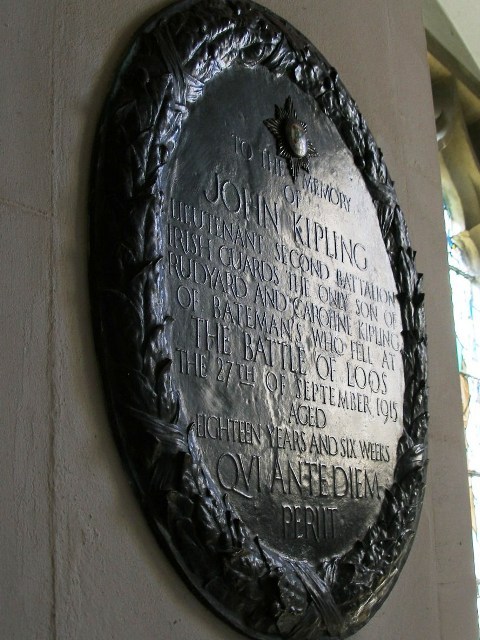
After his son's death, Kipling wrote a poem titled "Epitaphs of the War," which included the lines: "If any question why we died / Tell them, because our fathers lied." Critics have speculated that these words might express Kipling's guilt over his role in arranging John's commission despite his poor eyesight. However, Professor Tracy Bilsing argues that the "lie" refers to Kipling's disgust that British leaders failed to learn the lessons of the Boer War and were unprepared for the struggle with Germany in 1914, leading to thousands of British soldiers paying with their lives.
John's death has been linked to Kipling's 1916 poem "My Boy Jack", notably in the play and subsequent television adaptation of the same name, as well as the documentary Rudyard Kipling: A Remembrance Tale. However, the poem was originally published alongside a story about the Battle of Jutland and appears to refer to a death at sea; the "Jack" may refer to the boy VC Jack Cornwell or a generic "Jack Tar" (a British sailor). Within the Kipling family, "Jack" was the name of their dog, while John Kipling was always referred to as "John," making the direct identification of the poem's protagonist with his son questionable. Nevertheless, Kipling was profoundly emotionally devastated by his son's death. He reportedly assuaged his grief by reading the novels of Jane Austen aloud to his wife and daughter. During the war, he also wrote a booklet, The Fringes of the Fleet (1916), containing essays and poems on various nautical subjects of the war, some of which were set to music by the English composer Edward Elgar.
Kipling became friends with a French soldier named Maurice Hammoneau, whose life was saved in the First World War when a copy of Kim, carried in his left breast pocket, stopped a bullet. Hammoneau presented Kipling with the book, bullet still embedded, and his Croix de Guerre as a token of gratitude. They continued to correspond, and when Hammoneau had a son, Kipling insisted on returning the book and medal. On 1 August 1918, the poem "The Old Volunteer" appeared under his name in The Times. The next day, he wrote to the newspaper to disclaim authorship, and a correction was issued. Although The Times employed a private detective, the identity of the hoaxer was never established.
7. Post-War Activities and Public Service (1918-1936)
In the aftermath of World War I, Kipling remained actively engaged in public life, contributing to national remembrance efforts, commenting on international affairs, and taking on various public roles, even as his health began to decline.
7.1. Commonwealth War Graves Commission
Partly in response to John's death, Kipling joined Sir Fabian Ware's Imperial War Graves Commission (now the Commonwealth War Graves Commission, CWGC). This organization was responsible for establishing and maintaining the garden-like British war graves that are found today along the former Western Front and other locations worldwide where British Empire troops are buried. Kipling's significant contributions to the project included his selection of the biblical phrase, "Their Name Liveth For Evermore" (Ecclesiasticus 44.14, KJV), which is inscribed on the Stones of Remembrance in larger war cemeteries. He also suggested the poignant phrase "Known unto God" for the gravestones of unidentified servicemen. Additionally, he chose the inscription "The Glorious Dead" for the Cenotaph in Whitehall, London. He further contributed by writing a two-volume history of the Irish Guards, his son's regiment, published in 1923, which is considered one of the finest examples of regimental history.
Kipling's short story "The Gardener" depicts visits to these war cemeteries, and his poem "The King's Pilgrimage" (1922) chronicles a journey made by King George V to tour the cemeteries and memorials under construction by the Imperial War Graves Commission. With the increasing prevalence of the automobile, Kipling also became a motoring correspondent for the British press, enthusiastically documenting his trips around England and abroad, though he was typically driven by a chauffeur.
7.2. Public Engagements and Later Views
After the war, Kipling expressed skepticism towards Woodrow Wilson's Fourteen Points and the League of Nations. However, he held hopes that the United States would abandon its isolationist stance and that the post-war world would be dominated by a strong Anglo-French-American alliance. He particularly hoped the United States would accept a League of Nations mandate for Armenia as the best way to prevent isolationism, and he wished that Theodore Roosevelt, whom Kipling greatly admired, would again become president. Kipling was deeply saddened by Roosevelt's death in 1919, believing him to be the only American politician capable of keeping the United States actively involved in world politics.
Kipling remained fiercely hostile towards communism. He wrote of the Bolshevik takeover in 1917 that one-sixth of the world had "passed bodily out of civilization." In a 1918 poem, Kipling lamented that everything good in Soviet Russia had been destroyed by the Bolsheviks, leaving only "the sound of weeping and the sight of burning fire, and the shadow of a people trampled into the mire." In 1920, Kipling co-founded the Liberty League with H. Rider Haggard and Lord Sydenham. This short-lived initiative aimed to promote classic liberal ideals as a response to the rising power of communist tendencies within Great Britain, or, as Kipling put it, "to combat the advance of Bolshevism."
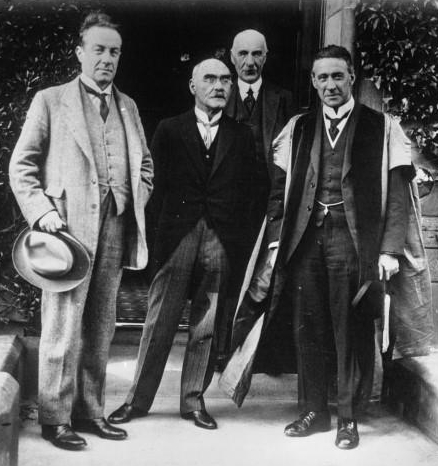
As a Francophile, Kipling strongly advocated for an Anglo-French alliance to uphold peace, referring to Britain and France in 1920 as the "twin fortresses of European civilization." Similarly, he repeatedly warned against revising the Treaty of Versailles in Germany's favor, predicting that such actions would inevitably lead to a new world war. An admirer of Raymond Poincaré, Kipling was one of the few British intellectuals who supported the French Occupation of the Ruhr in 1923, at a time when the British government and most public opinion opposed the French position. In contrast to the popular British view of Poincaré as a cruel bully intent on impoverishing Germany with unreasonable reparations, Kipling argued that Poincaré was rightfully trying to preserve France as a great power in the face of an unfavorable situation. Kipling reasoned that even before 1914, Germany's larger economy and higher birth rate had made that country stronger than France; with much of France devastated by war and suffering heavy losses, its low birth rate would cause future problems, while Germany remained largely undamaged and still had a higher birth rate. He concluded that the future would bring German domination if Versailles were revised in Germany's favor, and it was madness for Britain to pressure France to do so.
In 1924, Kipling expressed strong opposition to the Labour government of Ramsay MacDonald, characterizing it as "Bolshevism without bullets." He believed that Labour was a communist front organization, and that "excited orders and instructions from Moscow" would expose Labour as such to the British people. Kipling's political views were firmly on the right. While he admired Benito Mussolini to some extent in the 1920s, he was fundamentally against fascism, calling Oswald Mosley "a bounder and an arriviste." By 1935, he regarded Mussolini as a deranged and dangerous egomaniac, and in 1933, he wrote, "The Hitlerites are out for blood."
7.3. Engineering Ritual and University Rectorship
In 1922, Kipling, who had often referenced the work of engineers in his poems, such as "The Sons of Martha," "Sappers," and "McAndrew's Hymn," and in other writings like his short-story anthology The Day's Work, was approached by Herbert E. T. Haultain, a civil engineering professor at the University of Toronto. Haultain sought Kipling's assistance in developing a dignified obligation and ceremony for graduating engineering students. Kipling responded enthusiastically and soon produced "The Ritual of the Calling of an Engineer." Today, engineering graduates across Canada are presented with an iron ring at a ceremony to remind them of their obligation to society. In the same year, Kipling became Lord Rector of the University of St Andrews in Scotland, a position he held for three years.
7.4. Later Works and Declining Health
Kipling continued writing until the early 1930s, though at a slower pace and with less commercial success than in his peak years. In 1934, he published a short story in The Strand Magazine, "Proofs of Holy Writ," which posited that William Shakespeare had helped to polish the prose of the King James Bible. In the non-fiction realm, he became involved in the debate over the British response to the rise in German naval power, known as the Tirpitz Plan, to build a fleet to challenge the Royal Navy. He published a series of articles in 1898, collected as A Fleet in Being, addressing these concerns.
8. Death
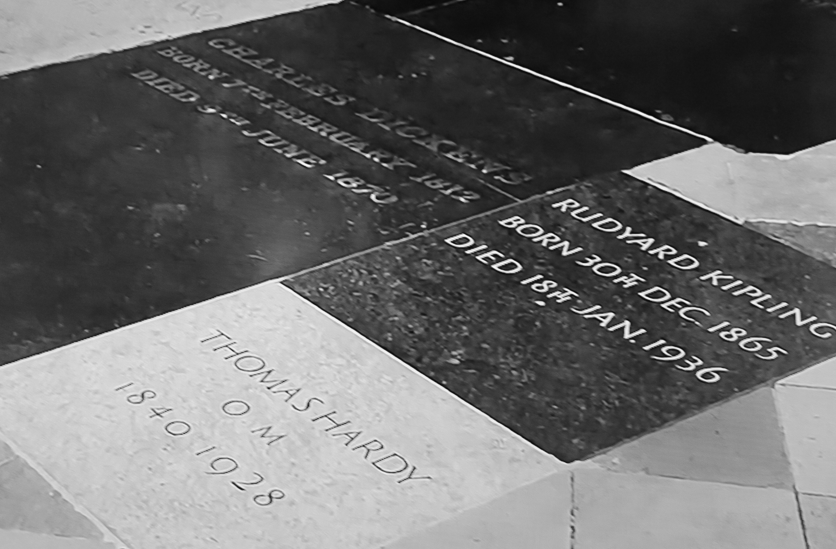
Rudyard Kipling continued to write into the early 1930s, but at a reduced pace and with less critical and commercial success than before. On the night of 12 January 1936, he suffered a hemorrhage in his small intestine. He underwent surgery but died less than a week later, on 18 January 1936, at the age of 70, at Middlesex Hospital in London. The cause of death was a perforated duodenal ulcer. His death had previously been incorrectly announced in a magazine, to which he famously quipped, "I've just read that I am dead. Don't forget to delete me from your list of subscribers."
Kipling's body lay in state in the Fitzrovia Chapel, part of Middlesex Hospital, after his death, and is commemorated with a plaque near the altar. The pallbearers at his funeral included his cousin, Prime Minister Stanley Baldwin, and his marble casket was draped with a Union Jack. Kipling was cremated at Golders Green Crematorium in north-west London, and his ashes were interred at Poets' Corner, part of the south transept of Westminster Abbey, alongside the graves of Charles Dickens and Thomas Hardy. His will was proven on 6 April, with his estate valued at £168,141 2s. 11d.
9. Legacy and Critical Reception
Rudyard Kipling's legacy is characterized by his enduring impact on literature and culture, alongside ongoing critical debates and reinterpretations of his work, particularly concerning themes of imperialism and race.
9.1. Literary Influence and Reputation
Kipling's writing has profoundly influenced many other authors. His stories for adults remain in print and have garnered high praise from diverse writers such as Randall Jarrell, who observed: "After you have read Kipling's fifty or seventy-five best stories you realize that few men have written this many stories of this much merit, and that very few have written more and better stories." His children's stories, particularly The Jungle Books, continue to be popular and have been adapted into several films, including those by producer Alexander Korda and The Walt Disney Company. A number of his poems were set to music by Percy Grainger, and a series of short films based on some of his stories was broadcast by the BBC in 1964. Kipling's work maintains significant popularity today.
In 2002, Kipling's Just So Stories were featured on a series of UK postage stamps issued by the Royal Mail to mark the centenary of the book's publication. In 2010, the International Astronomical Union approved the naming of a crater on the planet Mercury after Kipling, one of ten newly discovered impact craters observed by the MESSENGER spacecraft. In 2012, an extinct species of crocodile, Goniopholis kiplingi, was named in his honor "in recognition for his enthusiasm for natural sciences." More than 50 previously unpublished poems by Kipling, discovered by the American scholar Thomas Pinney, were released for the first time in March 2013.
The poet T. S. Eliot edited A Choice of Kipling's Verse (1941) with an introductory essay. Eliot acknowledged the criticisms leveled against Kipling, dismissing claims that he was merely "a Tory" using verse to transmit right-wing political views, or "a journalist" pandering to popular taste. Eliot wrote: "I cannot find any justification for the charge that he held a doctrine of race superiority." Instead, Eliot found in Kipling:
An immense gift for using words, an amazing curiosity and power of observation with his mind and with all his senses, the mask of the entertainer, and beyond that a queer gift of second sight, of transmitting messages from elsewhere, a gift so disconcerting when we are made aware of it that thenceforth we are never sure when it is not present: all this makes Kipling a writer impossible wholly to understand and quite impossible to belittle.
Of Kipling's verse, such as his Barrack-Room Ballads, Eliot remarked that "of a number of poets who have written great poetry, only... a very few whom I should call great verse writers. And unless I am mistaken, Kipling's position in this class is not only high, but unique."
In 1942, George Orwell wrote a lengthy consideration of Kipling's work for Horizon, noting that while Kipling was a "jingo imperialist" and "morally insensitive and aesthetically disgusting," his work possessed qualities that ensured "nine-tenths of those enlightened persons are forgotten and Kipling is in some sense still there." Orwell attributed Kipling's power to his "sense of responsibility, which made it possible for him to have a world-view, even though it happened to be a false one." He argued that Kipling, as a Conservative, identified with the ruling power, which, though it "warped his political judgement" and led him into "abysses of folly and snobbery," also gave him "a certain grip on reality" by forcing him to consider "what action and responsibility are like." Orwell also noted that Kipling was "not witty, not 'daring', has no wish to épater les bourgeois. He dealt largely in platitudes, and since we live in a world of platitudes, much of what he said sticks."
In 1939, the poet W. H. Auden celebrated Kipling in a similarly ambiguous way in his elegy for William Butler Yeats, a section Auden later removed from more recent editions of his poems:
Time, that is intolerant
Of the brave and innocent,
And indifferent in a week
To a beautiful physique,
Worships language, and forgives
Everyone by whom it lives;
Pardons cowardice, conceit,
Lays its honours at his feet.
Time, that with this strange excuse,
Pardoned Kipling and his views,
And will pardon Paul Claudel,
Pardons him for writing well.
The poet Alison Brackenbury described Kipling as "poetry's Dickens, an outsider and journalist with an unrivalled ear for sound and speech." The English folk singer Peter Bellamy, a great admirer of Kipling's poetry, believed much of it was influenced by English traditional folk forms. He recorded several albums of Kipling's verse set to traditional airs or his own compositions in a traditional style. However, the bawdy folk song, "The Bastard King of England", commonly attributed to Kipling, is believed to be misattributed.
Kipling is frequently quoted in discussions of contemporary British political and social issues. In 1996, former Prime Minister Margaret Thatcher quoted verses from Kipling's 1911 poem "The Reeds of Runnymede," which celebrates Magna Carta and envisions the "stubborn Englishry" defending their rights, as a warning against the encroachment of the European Union on national sovereignty. Political singer-songwriter Billy Bragg, who aims to foster a left-wing English nationalism in contrast to more common right-wing interpretations, has attempted to 'reclaim' Kipling for an inclusive sense of Englishness. Kipling's enduring relevance has also been noted in the United States, particularly as it has become involved in Afghanistan and other regions about which he wrote.
9.2. Controversies and Changing Perspectives
Kipling's reputation has been subject to continuous critical re-evaluation, particularly concerning his portrayal of imperialism, race, and his political stances.
9.2.1. Swastika Symbol

Many older editions of Rudyard Kipling's books feature a swastika printed on the cover, often alongside an image of an elephant carrying a lotus flower, reflecting the influence of Indian culture. Kipling's use of the swastika was based on its traditional Indian meaning as a sun symbol conferring good luck, derived from the Sanskrit word meaning "fortunate" or "well-being." He used the swastika symbol in both right-facing and left-facing forms, and it was in general use by others at the time. In a note to Edward Bok after the death of Lockwood Kipling in 1911, Rudyard wrote: "I am sending with this for your acceptance, as some little memory of my father to whom you were so kind, the original of one of the plaques that he used to make for me. I thought it being the Swastika would be appropriate for your Swastika. May it bring you even more good fortune." Once the swastika became widely associated with Adolf Hitler and the Nazis, Kipling ordered that it should no longer adorn his books. Less than a year before his death, Kipling delivered a speech titled "An Undefended Island" to the Royal Society of St George on 6 May 1935, warning of the danger that Nazi Germany posed to Britain.
9.2.2. Reputation in India
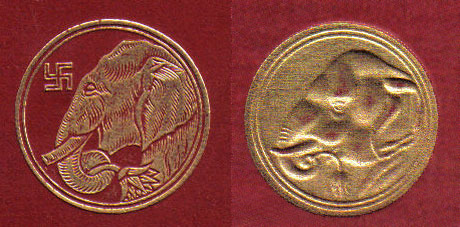
In modern-day India, the source of much of his material, Kipling's reputation remains controversial, particularly among modern nationalists and some post-colonial critics. It has long been alleged that Rudyard Kipling was a prominent supporter of Colonel Reginald Dyer, who was responsible for the Jallianwala Bagh massacre in Amritsar, and that Kipling called Dyer "the man who saved India" and initiated collections for a homecoming prize for him. However, historians like Kim Wagner and Derek Sayer clarify that while Kipling did make a 10 GBP donation, he never made that specific remark. Derek Sayer states that Dyer was "widely lauded as the saviour of Punjab," that Kipling had no part in organizing The Morning Post fund, and that Kipling only sent 10 GBP, making the laconic observation: "He did his duty, as he saw it." Subhash Chopra, in his book Kipling Sahib - the Raj Patriot, also attributes the benefit fund to The Morning Post newspaper, not Kipling. The Economic Times similarly attributes the phrase "The Man Who Saved India" and the Dyer benefit fund to The Morning Post.
Many contemporary Indian intellectuals, such as Ashis Nandy, hold a nuanced view of Kipling's legacy. Jawaharlal Nehru, the first prime minister of independent India, frequently cited Kipling's novel Kim as one of his favorite books. G. V. Desani, an Indian writer, held a more negative opinion, alluding to Kipling critically in his novel All About H. Hatterr. Indian writer Khushwant Singh wrote in 2001 that he considered Kipling's "If-" to be "the essence of the message of The Gita in English," referring to the Bhagavad Gita, an ancient Indian scripture. Conversely, Indian writer R. K. Narayan (1906-2001) observed: "Kipling, the supposed expert writer on India, showed a better understanding of the mind of the animals in the jungle than of the men in an Indian home or the marketplace." The Indian politician and writer Shashi Tharoor commented that "Kipling, that flatulent voice of Victorian imperialism, would wax eloquent on the noble duty to bring law to those without it." In November 2007, it was announced that Kipling's birth home on the campus of the J. J. School of Art in Mumbai would be transformed into a museum celebrating the author and his works.
9.3. Cultural Impact and Memorials
Kipling's influence extends beyond literature into various cultural spheres, inspiring movements and being honored through memorials.
9.3.1. Links with Camping and Scouting
Kipling's works, particularly The Jungle Books, have had a strong and lasting connection with youth movements. In 1903, Kipling granted permission to Elizabeth Ford Holt to adapt themes from The Jungle Books to establish Camp Mowglis, a summer camp for boys on the shores of Newfound Lake in New Hampshire. Throughout their lives, Kipling and his wife, Carrie, maintained an active interest in Camp Mowglis, which continues to uphold the traditions inspired by Kipling. Buildings at Mowglis are named after characters like Akela, Toomai, Baloo, and Panther. The campers are referred to as "the Pack," with the youngest called "Cubs" and the oldest living in "Den."
Kipling's links with the Scouting movement were also significant. Robert Baden-Powell, the founder of Scouting, incorporated many themes from The Jungle Book stories and Kim when establishing his junior Wolf Cubs (now Cub Scouts). These ties persist, exemplified by the popularity of "Kim's Game." The movement's terminology is inspired by Mowgli's adopted wolf family, and adult helpers of Cub Scout Packs adopt names from The Jungle Book, such as the adult leader being called Akela after the leader of the Seeonee wolf pack.
9.3.2. Bateman's (Kipling's Home)
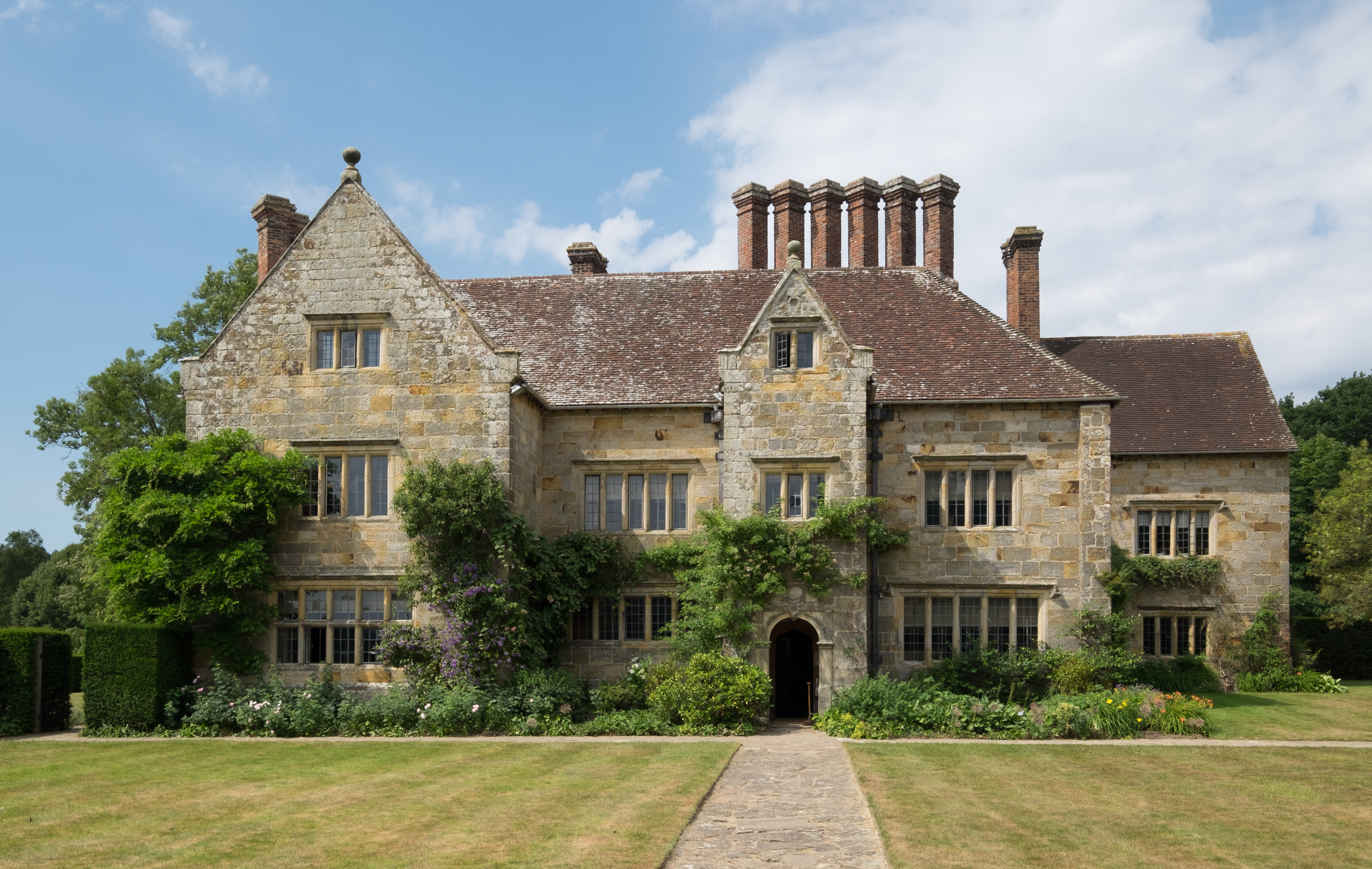
After the death of Kipling's wife in 1939, their home, Bateman's in Burwash, East Sussex, where he had lived from 1902 until 1936, was bequeathed to the National Trust. It now serves as a public museum dedicated to the author. Elsie Bambridge, his only child who lived to maturity, died childless in 1976 and bequeathed her copyrights to the National Trust, which in turn donated them to the University of Sussex to ensure better public access.
Novelist and poet Sir Kingsley Amis wrote a poem, "Kipling at Bateman's," after visiting Burwash (where Amis's father briefly lived in the 1960s) as part of a BBC television series on writers and their houses. Amis found Bateman's to convey a "terribly gloomy" impression to the entire film crew. In 2003, actor Ralph Fiennes recorded excerpts from Kipling's works, including The Jungle Book, Something of Myself, Kim, The Just So Stories, and poems like "If-" and "My Boy Jack", from the study at Bateman's for a CD published by the National Trust.
9.4. Art
While primarily celebrated as an author, Kipling was also an accomplished artist. Influenced by figures such as Aubrey Beardsley, Kipling produced numerous illustrations for his own stories, notably for a 1926 edition of his Just So Stories.
10. Bibliography
Kipling's extensive bibliography includes fiction (novels and short stories), non-fiction, and poetry. Several of his works were collaborations.
- Departmental Ditties and Other Verses (1886) (poetry collection)
- The Story of the Gadsbys (1888)
- Plain Tales from the Hills (1888) (short story collection)
- The Phantom Rickshaw and other Eerie Tales (1888)
- Soldiers Three (1888)
- The Light that Failed (1890) (novel)
- "Mandalay" (1890) (poem)
- "Gunga Din" (1890) (poem)
- Barrack-Room Ballads (1892) (poetry collection)
- Many Inventions (1893) (short story collection)
- The Jungle Book (1894) (short story collection)
- The Second Jungle Book (1895) (short story collection)
- "If-" (1895) (poem)
- The Seven Seas (1896) (poetry collection)
- Captains Courageous (1897) (novel)
- "Recessional" (1897) (poem)
- The Day's Work (1898) (short story collection)
- Stalky & Co. (1899)
- "The White Man's Burden" (1899) (poem)
- Kim (1901) (novel)
- Just So Stories (1902)
- The Five Nations (1903) (poetry collection)
- Traffics and Discoveries (1904) (short story collection)
- Puck of Pook's Hill (1906)
- Actions and Reactions (1909) (short story collection)
- Rewards and Fairies (1910) (short story collection)
- Life's Handicap (1915) (short story collection)
- The Fringes of the Fleet (1916) (essays and poems)
- The Irish Guards in the Great War (1923) (non-fiction history)
- Debits and Credits (1926) (short story collection)
- Limits and Renewals (1932) (short story collection)
- Something of Myself (1937) (autobiography, posthumously published)
11. Adaptations
Rudyard Kipling's works have been widely adapted across various media, reflecting their enduring popularity and cultural impact.
11.1. Screen Portrayals
Notable actors who have portrayed Rudyard Kipling in films and television productions include:
- Reginald Sheffield in Gunga Din (1939)
- Paul Scardon in The Adventures of Mark Twain (1944)
- David Watson in The Time Tunnel episode "Night of the Long Knives" (1966)
- Christopher Plummer in The Man Who Would Be King (1975)
- David Haig in My Boy Jack (2007)
- Seán Cullen in the Murdoch Mysteries season 16 episode "The Write Stuff" (2023)
11.2. Other Adaptations
Kipling's stories and poems have been adapted into various other forms, including musical compositions, stage plays, and radio dramas. His poems were set to music by composers such as Percy Grainger and Edward Elgar. The BBC broadcast a series of short films based on some of his stories in 1964. His children's stories, particularly The Jungle Books, have seen multiple film adaptations, notably by Alexander Korda and The Walt Disney Company.
12. See also
- 5W1H
- Anglo-Indian
- British Empire
- Commonwealth War Graves Commission
- Great Game
- HMS Birkenhead-Ship mentioned in one of Kipling's poems
- Imperialism
- Kipling Trail
- Law of the jungle
- List of Nobel laureates in Literature
- MacGuffin
- Pax Britannica
- White supremacy